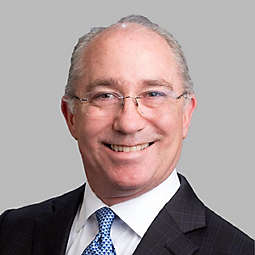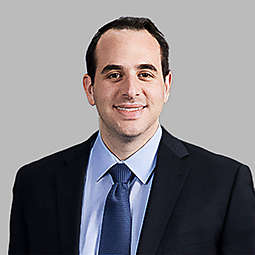Overview
Overview
NYLI MacKay Core Plus Bond ETF (CPLB) is an actively-managed strategy that seeks total return.
Actively Managed Strategy
Employs a top-down and bottom-up investment process seeking to generate compelling risk adjusted returns.
Specialty Fixed Income Expertise
Capitalizes on MacKay Shields collective expertise bringing together two experienced teams with deep investment capabilities in multi sector and high yield fixed income.
Focus on Disciplined Risk Management
Emphasis on rigorous security analysis to help mitigate default risk, with portfolio level risk controls to monitor volatility.
Performance
Performance
Returns represent past performance which is no guarantee of future results. Current performance may be lower or higher. Investment return and principal value will fluctuate, and shares, when redeemed, may be worth more or less than their original cost. Expenses stated are as of the fund's most recent prospectus.
Index performance is for illustrative purposes only and does not represent actual Fund performance. One cannot invest directly in an index. Performance data for the Index assumes reinvestment of dividends and is net of the management fees for the Index's components, as applicable, but it does not reflect management fees, transaction costs or other expenses that you would pay if you invested in the Fund directly. No representation is being made that any investment will achieve performance similar to that shown. Shares are bought and sold at market price (not NAV) and are not individually redeemed from the Fund. Net asset value (NAV) returns are calculated using the daily NAV as of the close of regular trading on the Fund’s primary exchange (typically 4:00pm ET). Effective August 31, 2025, the price used to calculate market price (MP) returns is the Fund’s official closing price. Prior to August 31, 2025, market price returns were determined using the mean between the day's last bid and ask prices on the fund's primary exchange. The market price returns do not represent returns an investor would receive if shares were traded at other times.
Bloomberg U.S. Aggregate Bond Index is generally representative of the market sectors or types of investments in which the Fund invests.
Performance reflects a contractual fee waiver and/or expense limitation agreement which shall remain in effect until terminated by the Board of Trustees of the ETF without which total returns may have been lower.
Portfolio
Portfolio
Percentages are based on fixed-income securities held in the Fund's investment portfolio and exclude any equity or convertible securities and cash or cash equivalents. Ratings apply to the underlying portfolio of debt securities held by the Fund and are rated by an independent rating agency, such as Standard and Poor's, Moody's, and/or Fitch. If different ratings are assigned for the same security, the Fund will use the higher rating. If only one rating is provided, the available rating will be utilized. S&P rates borrowers on a scale from AAA to D. AAA through BBB represent investment grade, while BB through D represent non-investment grade.
Distribution & Yields
Distribution & Yields
Subsidized Yield: the yield of a fund that includes any fee waivers or reimbursements currently in place by the fund’s manager. This figure shows the income generated by the fund after accounting for reduced expenses, giving a more favorable representation of returns under current conditions.
Unsubsidized Yield: the yield of a fund that excludes any fee waivers or reimbursements. It reflects the income the fund would generate if the full expenses were charged, offering a view of returns without any temporary fee reductions.
Distributions may be comprised of ordinary income, net capital gains, and/or a return of capital (ROC) of your investment in the fund. Because the distribution rate and the 12-month rate may include a ROC, they should not be confused with yield or income. Please refer to the most recent Section 19 Notice, if applicable, for additional information regarding the composition of distributions. Final determination of a distribution’s tax character will be made on Form 1099 DIV sent to shareholders each January.
Distribution Rate: Distribution rate is calculated by annualizing the most recent distribution per share (dividing the number of calendar days during the year by the number of calendar days over which the most recent distribution accumulated) and dividing it by the NAV. The Fund intends to pay monthly distributions from net investment income.
12-month Rate: The 12-month rate measures the percentage return in the form of dividends. It is calculated monthly by taking the sum of the trailing 12-month dividend payments divided by the last month's ending share price (NAV or POP) plus any capital gains distributed over previous 12 months. If the Fund did not make any distributions over the previous 12 months, "N/A" will be displayed.
The 30 Day SEC Yield is calculated by dividing the net investment income per share for the first 30 days of the month by the offering price per share at the end of that period. The yield reflects the dividends and interest earned during the period, after the deduction of the Fund's expenses. Yield reflects a fee waiver and/or expense limitation agreement without which the 30 Day SEC Yield would have been lower.
Fees & Expenses
Fees & Expenses
Performance reflects a contractual fee waiver and/or expense limitation agreement which shall remain in effect until terminated by the Board of Trustees of the ETF without which total returns may have been lower.
Team
Team

Neil Moriarty
Senior Managing Director, Co-Head of Global Fixed Income

Michael DePalma
Senior Managing Director, Co-Head of Global Fixed Income

Andrew Susser
Executive Managing Director, Head of High Yield

Lesya Paisley
Managing Director

Zachary Aronson
Managing Director




